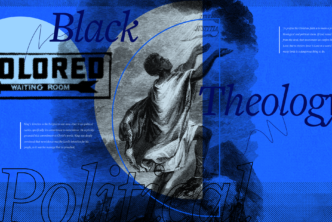One of the most influential of all British Baptists wrote the following lines:
The old truth that Calvin preached, that Augustine preached, that Paul preached, is the truth that I must preach today, or else be false to my conscience and my God. I cannot shape the truth; I know of no such thing as paring off the rough edges of a doctrine. John Knox’s gospel is my gospel. That which thundered through Scotland must thunder through England again.
Who was he? None less than C.H. Spurgeon—one of the most widely cited and influential Baptists in all of Baptist history. But that wasn’t his only assertion about Calvin and Calvinism. In his ‘Defense of Calvinism’ he also suggests,
I suppose there are some persons whose minds naturally incline towards the doctrine of free-will. I can only say that mine inclines as naturally towards the doctrine of sovereign grace. Sometimes, when I see some of the worst characters in the street, I feel as if my heart must burst forth in tears of gratitude that God has never let me act as they have done! I have thought, if God had left me alone, and had not touched me by His grace, what a great sinner I should have been! I should have run to the utmost lengths of sin, dived into the very depths of evil, nor should I have stopped at any vice or folly, if God had not restrained me. I feel that I should have been a very king of sinners, if God had let me alone. I cannot understand the reason why I am saved, except upon the ground that God would have it so. I cannot, if I look ever so earnestly, discover any kind of reason in myself why I should be a partaker of Divine grace.
This is so very Calvinistic that Calvin himself would have amen-ed. What follows a little further on in the treatise may well be affirmed by Calvin too—had he a say in the matter:
There is no soul living who holds more firmly to the doctrines of grace than I do, and if any man asks me whether I am ashamed to be called a Calvinist, I answer- I wish to be called nothing but a Christian; but if you ask me, do I hold the doctrinal views which were held by John Calvin, I reply, I do in the main hold them, and rejoice to avow it. But far be it from me even to imagine that Zion contains none but Calvinistic Christians within her walls, or that there are none saved who do not hold our views. Most atrocious things have been spoken about the character and spiritual condition of John Wesley, the modern prince of Arminians. I can only say concerning him that, while I detest many of the doctrines which he preached, yet for the man himself I have a reverence second to no Wesleyan; and if there were wanted two apostles to be added to the number of the twelve, I do not believe that there could be found two men more fit to be so added than George Whitefield and John Wesley.
Baptists have affirmed the teachings of Calvin, in the main, for a very long time. The rejection of those teachings, in the main, by many among Baptists today (and particularly in the SBC) isn’t so much a return to Baptist roots as it is an aberration.





